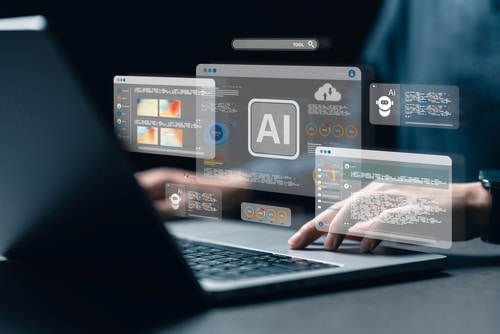As we approach the traditional post-Labor Day hiring surge, known as the “September Surge,” HR professionals may be bracing for an even more significant influx of job applications. Thanks to the growing popularity of AI-generated resumes, cover letters, and automated application tools, the number of candidates vying for positions is likely to increase substantially.
Xplor Technologies has seen a staggering 75% rise in job applications, partially attributed to the widespread use of these AI-driven tools. While technology can streamline the job search process for candidates, it also presents unique challenges for hiring teams.
In this Q&A, Kara Ayers, SVP Global Talent Acquistion, Total Rewards & Inclusion at Xplor Technologies, shares how HR professionals can navigate this AI-driven job market.
How are job applicants leveraging AI in the job application process?
KA: Hiring managers are becoming increasingly accepting of AI assistance within the application process, in fact 90% believe it’s ok to use AI-generated materials. However, it should be used as a starting point and balanced with authentic personal insights and examples.
Another area where applicants are using AI is throughout the interviewing process. A study shows 30% of people use AI to write responses to tasks or questions, and 32% find them helpful for practicing interview questions.
How are companies adapting their hiring processes to identify and evaluate AI applications?
KA: Employers are proactively adjusting their hiring procedures to identify AI-generated applications. For example, at Xplor Technologies we have methods like embedding specific phrases or instructions within job descriptions to ensure that candidates personally read through them. This step serves to filter out applications generated by AI, which might overlook such nuances. Beyond this, many companies are incorporating AI detection software and revising their recruitment policies to find a balance between genuine human interaction and the efficiencies AI can offer. Clear guidelines on acceptable AI usage are also being considered to provide transparency.
To avoid applicants using AI to respond to writing prompts and interview questions, live video interviews are helpful to assess the true knowledge and experience of a candidate as well as their enthusiasm for the role, company and industry.
What are the positive and negative impacts of applicants using AI to assist in the application process?
KA: AI brings notable advantages, such as helping candidates’ structure well-written resumes, especially for those who might struggle with articulation. It offers individuals from diverse backgrounds, including those with English as a second language or disabilities–for example dyslexia– an equal chance to present their qualifications effectively. On the downside, over-reliance on AI can result in applications that exaggerate experience or qualifications. From an employer standpoint, AI generated applications can also lead to a flood of similar applications, making it harder for employers to identify truly unique candidates. The key is for applicants to use AI as a tool to enhance, rather than replace, their personal voice.
How do you see AI changing the global talent landscape?
KA: AI is transforming the global talent landscape by enabling companies to screen and assess candidates more efficiently. At the same time, it increases competition for top roles, as more candidates have the ability to apply remotely. However, with this expanded access, the challenge will be to ensure that hiring remains personal and holistic, balancing technical qualifications with cultural and interpersonal skills.
What are the potential long-term impacts on job market dynamics if AI-assisted applications become the norm?
KA: We’ve already seen a rise in application volume due to AI-assisted applications, but this is likely just the beginning. Companies will need to continue to evolve their application processes to differentiate between human-generated and AI-generated content and evaluation criteria to focus more on assessing real competencies. In the long term, AI might drive up the baseline for job applications, as candidates optimize their resumes and interview prep. This could lead to a more skilled workforce but could also make the application process feel less personal, with technology taking center stage over human interaction.
Does the widespread use of AI in resume writing exacerbate or alleviate existing inequalities in the job market?
KA: AI holds promise for reducing inequalities by providing a foundational tool for those who struggle with resume writing, such as individuals with learning disabilities or non-native language speakers. It levels the playing field by helping these candidates articulate their experiences clearly. However, the key to success is for applicants to use AI as a support mechanism, not as a crutch. Candidates should ensure their applications reflect their unique experiences and strengths, as over-reliance on AI could result in generic, less engaging submissions, ultimately reinforcing barriers in the job market.
The post AI-Powered Job Search—Is the ‘September Surge’ About to Get Even Bigger? appeared first on HR Daily Advisor.
